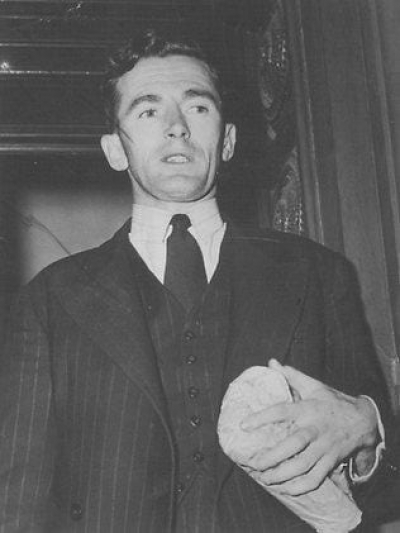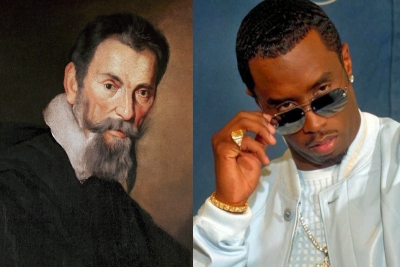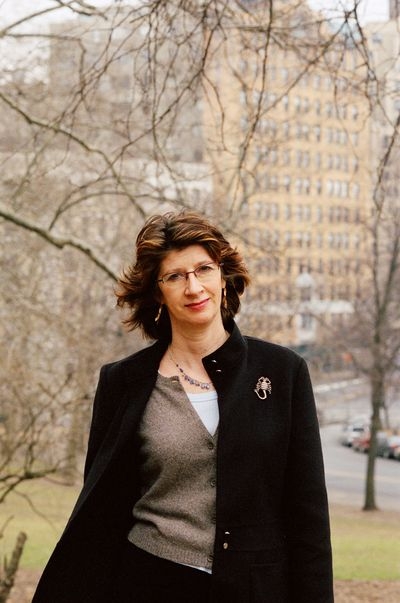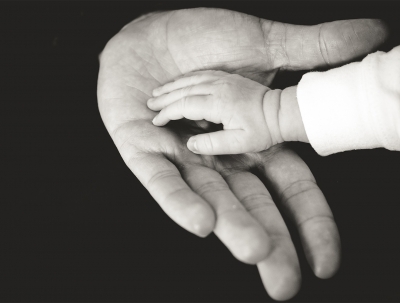La Trobe University Essay
La Trobe University Essay | 'A BIG LIE: Manning Clark, Frank Hardy and "Fictitious History"' by James Griffin
‘People are not entitled in a civil society to pursue a malicious campaign of character assassination based on a big lie.’ This was Andrew Clark, son of the historian Manning Clark, expressing understandable outrage on behalf of his family. The issue was the infamous allegation, based on nebulous evidence, that Manning was ‘an agent of Soviet influence’ and had been awarded the Order of Lenin. Unfortunately, as the Clarks will know, the big lie, even when refuted, spreads across generations. Although the onus is supposed to be on the accusers to prove their allegations, in reality it is easily, plausibly reversed.
... (read more)Famous Battles in the War between Words and Music: From Monteverdi to Puff Daddy
An excuse first. This can only be a magpie’s look at a marriage – between poetry and music – that has a near-infinite history of complex living arrangements, recurrent divorces, remarriages and impromptu de facto cohabitations. I’ve chosen a few marital battles of particular interest to me, a writer for whom song is a sometime thing. I’d like to claim those battles as representative of some epochs and musical styles, at least within various Western traditions; they are certainly representative of my musical obsessions.
... (read more)Last year, in the Australian Book Review/La Trobe University Annual Lecture series, Ian Donaldson gave a sparkling talk on biography. He told us that it has emerged as something of a cultural phenomenon in recent years, with a biography section at the front of many bookshops. We now know that the genre has endless possibilities (biographers have written about London, Paris, the pineapple and the potato), and that, despite its dissenters, biography has even become acceptable within the academy. My brother, a paediatrician who works in intensive care, has been known to end telephone conversations by saying: ‘Gotta go, got lives to save.’ Ever since Ian Donaldson’s talk, with its wonderful title, ‘Matters of Life and Death: The Return of Biography’ (ABR, November 2006), I have felt able to say: ‘Gotta go, got lives to write.’
... (read more)At first, you find the claim that you resemble your parents implausible. Later, you find it unflattering. But there are moments when you glimpse someone in a mirror and only belatedly recognise yourself. These are the moments when you realise – it is in equal parts chastening and reassuring – that if you are moving through time as an image of your parents’ past, their image is waiting for you in mirrors: they are the ghosts that haunt your future, as it were.
... (read more)In the teaching of copyright, it is usually said that copyright is an economic right. In Arnhem Land, they think otherwise. In 1990, I attended a meeting of Aboriginal artists in Maningrida. These artists had been involved in a copyright infringement case concerning the unauthorised reproduction of works of art on T-shirts. The case had settled, and the purpose of the meeting was to discuss the division of the spoils. The case involved a number of artists and different infringements by the same infringer.
... (read more)La Trobe University Essay | 'The Geist in the Mirror: Harold Stewart, James McAuley and the Art of Translation' by Keith Harrison
Ern Malley aside, Harold Stewart and James McAuley are poetic confrères in a region of Australian letters that has been largely overlooked. McAuley (1917–76), who translated only intermittently from the German, gave us poems by Stefan Georg, Karl Haushofer, and Georg Trakl, but the poem I will concentrate on is his 1946 version of Rainer Maria Rilke’s ‘Herbsttag’, which is so remarkable that later I intend to examine it closely. Stewart 1916–95), in contrast to McAuley, spent a good deal of his writing life, both in Australia and Japan, in translating Japanese classical verse, particularly the masters of haiku: Bashô, Buson, Shiki, Issa, Ryokan, Baizan, and others. This work, which occupied him for many years in Australia and Japan, was gathered in two books that will be the focus of my remarks.
... (read more)The art collections are the main thing in an art museum, not the special exhibitions or other programs necessary for present-day credibility and fundraising. Special exhibitions can be easy fast-food showbiz, or else they can be too authoritarian, over-theorised, and bullying. Collections, the bigger the better, are where you can drop in, any day of the year, for a bit of reinvention. It’s good to choose your own pace when you want to get out of yourself .
... (read more)Primo Levi, in two interviews given almost twenty years ago*, set a standard of critical sympathy that is not only exemplary, but peculiarly apt to the fraught debate about the post-September 11 world and the USA’s place and reputation within it.
... (read more)Querulous impatience has overtaken discussion of Aboriginal matters in some quarters. ‘If we apologise, they must forgive and then assimilate. Invite them to discussions about how to ameliorate their misery – the disintegration of community, the alcoholism, the glue sniffing. But they mustn’t talk “ideology”. We’ve had enough brooding over the past, heard enough about treaties and self-determination, and more than enough about genocide. It’s time to move on.’ That’s what I hear and in that tone.
... (read more)For any editor, one of the attractions and challenges of shaping a magazine is the unexpected submission that arrives at the eleventh hour. When the author happens to be someone of the stature of Raimond Gaita, one is indeed fortunate. This month, we are pleased to be able to bring you Professor Gaita’s incisive, yet anguished, contribution to the debate about reconciliation and genocidal impulses in Australian history. His piece, entitled ‘Why the Impatience? Genocide, “Ideology” and Practical Reconciliation’, is our La Trobe University Essay for July. It takes up some of the issues raised by Inga Clendinnen in the Australian Review of Books, an essay that prompted much correspondence in the June issue of that publication.
... (read more)





